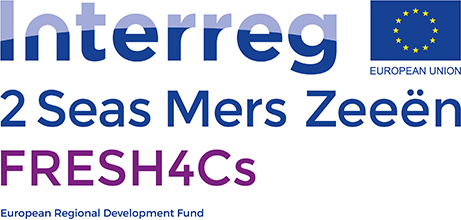Traditional water resources are under pressure in the 2seas region, and this problem is even more prominent in lowland coastal regions due to salinization of (near) surface waters.

These same coastal lowlands drain vast amounts of water towards the sea at moments of seasonal (winter) water surplus. Also waste water effluent is often drained. Where water consumption has often been reduced to economic feasible levels, a second step in efficient water resource management is providing alternative and more sustainable resources, which is the focus of this project. We will do this by the efficient use of the fresh water resources that are now drained to the sea.
The FRESH4Cs project wants to demonstrate alternative fresh water resources for different water users in coastal lowlands. Six demonstration cases will show how different technologies can ensure future water availability in those coastal lowlands. These demo cases are supported by a technology evaluation and by an assesment of the non-technological barriers that prevent further replication.
FRESH4Cs has received funding from the Interreg 2 Seas programme 2014-2020 co-funded by the European Regional Development Fund under subsidy contract No 2S06-028.
FRESH4Cs demonstrates alternative water resources for coastal regions in the UK, Belgium and the Netherlands. Each demo case focusses on providing alternative and sustainable water resources through innovative technological and non-technological solutions. Currently we focus on water transfer and storage (Felixstowe), aquifer recharge (Kapelle, Kwetshage, Felixstowe) and a nature based solution for treating waste water effluent.
Read our Suffolk MAR Research Summaries:

)